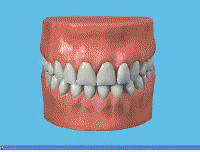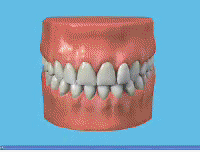What is cosmetic dentistry by the American Academy of Cosmetic Dentistry American Academy of Cosmetic Dentistry
There have been plenty of movie stars, models, even media personalities who have used cosmetic dentistry to help enhance their image.
But cosmetic dentistry is not just for “high profile” people, it’s for individuals like you and me, our families, our co-workers and neighbors. And, being more affordable than it was a decade ago, more people like you and me are having cosmetic dental work done.
Cosmetic dentistry is one of dentistry’s fastest growing areas. Eighty-four percent of dentists now offer cosmetic procedures as part of their practices and half of these report a steady increase in the amount of cosmetic procedures performed over the last three years, according to an American Dental Association survey.
Cosmetic dentistry can help people just like you:
An adult who has suffered through their teens too embarrassed to smile because of discolored teeth.
Seniors wanting a more youthful, healthier appearance.
A child who chipped teeth in a playground accident.
Survivors of domestic violence.
Victims of automobile or sporting accidents.
Cosmetic dentists can correct these problems and improve a person’s smile and overall appearance through a variety of techniques, including veneers, crowns, bridges and tooth whitening.
Veneers – can be used to correct crooked, chipped or worn teeth.
Crowns & Bridges – are an option for general bite dysfunction and missing teeth.
Tooth Whitening – is an effective means of whitening stained, discolored or dull teeth.
While, at first glance these may seem to offer primarily esthetic benefits, cosmetic dentistry can also help provide many emotional and health benefits.
An improved smile can boost a person’s self image, making them more confident in their daily lives. Higher self-esteem, for example, could help motivate a person to pursue a new career, a career they had previously ruled out because of a lack of self-confidence.
An AACD survey revealed that 74% of adult Americans who responded believe an unattractive smile can hurt a person’s chances for career success, while 92% say an attractive smile is an important social asset.
Experts say oral health also benefits when a person has their smile improved. “People are more concerned about maintaining their teeth after cosmetic dentistry because they are proud of the way they look. Once they have seen the benefits of a healthy, natural smile, oral health becomes a priority,” says AACD Accredited Member Dr. Dean Lodding. For information about cosmetic dentistry, please contact the AACD at:
American Academy of Cosmetic Dentistry®
5401 World Dairy Drive
Madison, WI 53718
Phone: (800) 543-9220


